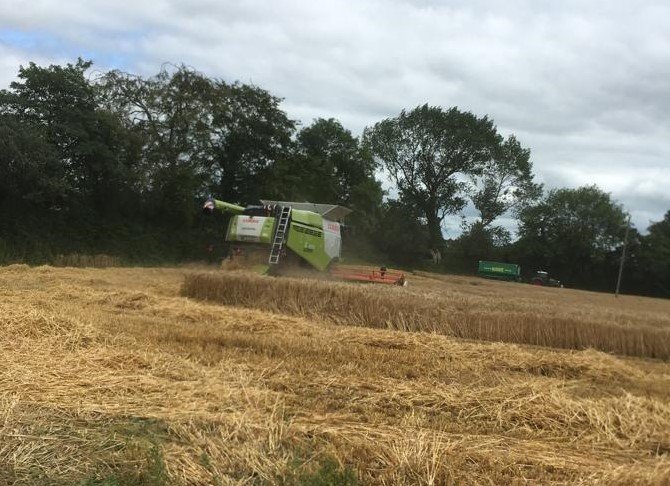
Teagasc Crop Report
Update Number 10 2023
Update Number 10 2023

To view the full report you must have an existing account with Teagasc ConnectEd.
Farmers sign in hereAlready have a ConnectEd account? Connected Client or Teagasc staff log in here
Winter Oilseed Rape
While some of this season’s winter oilseed crop still remains to be harvested it is important to plan for next season’s crop. Early sowing is crucial for canopy development but many growers may be constrained by unharvested crops and straw removal which may alter plans.
The area of winter oilseed rape increased to 20,500 ha in 2023 in response to favourable prices and an earlier than normal finish to the harvest. This area may be difficult to maintain for 2024.
There has been an increase in the number of cases of club root in the last 12 months. It is important to observe good rotations to reduce the risk of club root. Oilseed rape should not be grown on land where brassicas have been grown during the previous 4 years.
Click here for further information on establishment, seed rates and varieties.
Stubble cultivation
An extension to the shallow cultivation rules for tillage farmers has been granted by DAFM due to adverse weather conditions. The current 14-day period to complete the shallow cultivation has been extended to 28 days for crops that are harvested up to August 4, 2023. Where shallow cultivation is required on this land, it must be done by September 1, 2023.
Key features of the stubble cultivation measure and FAQ is available here
Please create an account to view hidden content
Harvest management
Record rainfall in many parts of the country during July has adversely affected tillage crops. Lodging is widespread in spring barley and winter wheat, secondary growth is an issue in spring barley and ground conditions have deteriorated resulting in poor trafficability. The current spell of wet weather has delayed the harvesting of crops and baling of straw. While there is no remedial action for wet weather there are a few actions that farmers can take to reduce losses.
- Prioritise high value crops. Where harvesting opportunities arise harvest high value crops like malting barley and seed crops first.
- Where secondary growth exists in spring barley try to avoid there areas for malting and seed crops. Note: the use of glyphosate is not allowed on seed or malting barley crops. The use of glyphosate is only allowed for the control of weeds in feed crops.
- Harvest varieties with poor resistance to sprouting first. Eg. winter wheat, Spearhead (4) versus KWS Dawsum (8).
- Soil compaction. If ground conditions are poor limit tractors and trailers to headlands and drive on tramlines. Only half fill loads if necessary.
Prevention of soil compaction damage is always better than the cure.
- Try to clear straw from fields that are planned for winter oilseed rape first before straw from other fields.
Potatoes
The recent prolonged wet weather has caused a lot of issues with potato crops, there were many reports of blight in crops over the past two weeks with growers now struggling to control outbreaks in many areas throughout the country.
Planning catch crops for grazing
Remember when planning catch crops for grazing with livestock you must provide an adequate lie-back area which is always accessible to grazing livestock. The lie-back area must be grassland. The available lie back area must be at least equal in area to the adjacent non-grass forage area e.g., 5ha of kale will require at least 5ha of lie-back. Further details on page 82 in the Explanatory Handbook for Conditionality Requirements
National Crops Forum 2023
The annual Teagasc Tillage Crops Forum will take place on Friday September 8th @ 2.00pm in Kilashee House Hotel Naas.
This years event will include details on;
- Varieties for 2024
- IPMworks project and the future of plant protection products in Europe
- A group forum on the future of the tillage sector in Ireland
There will be lots of opportunity to hear about the future prospects for the industry and to for the audience to give their opinions and thoughts on where the industry is heading. For further details click on Teagasc events